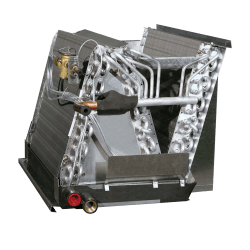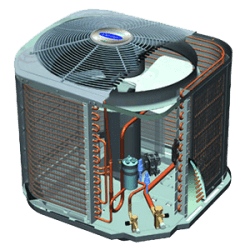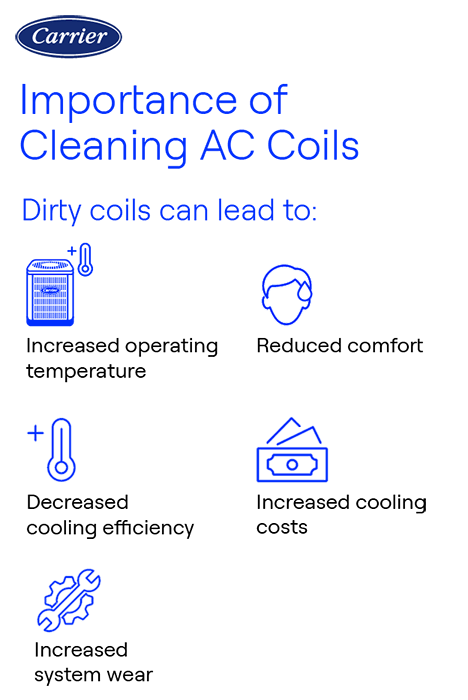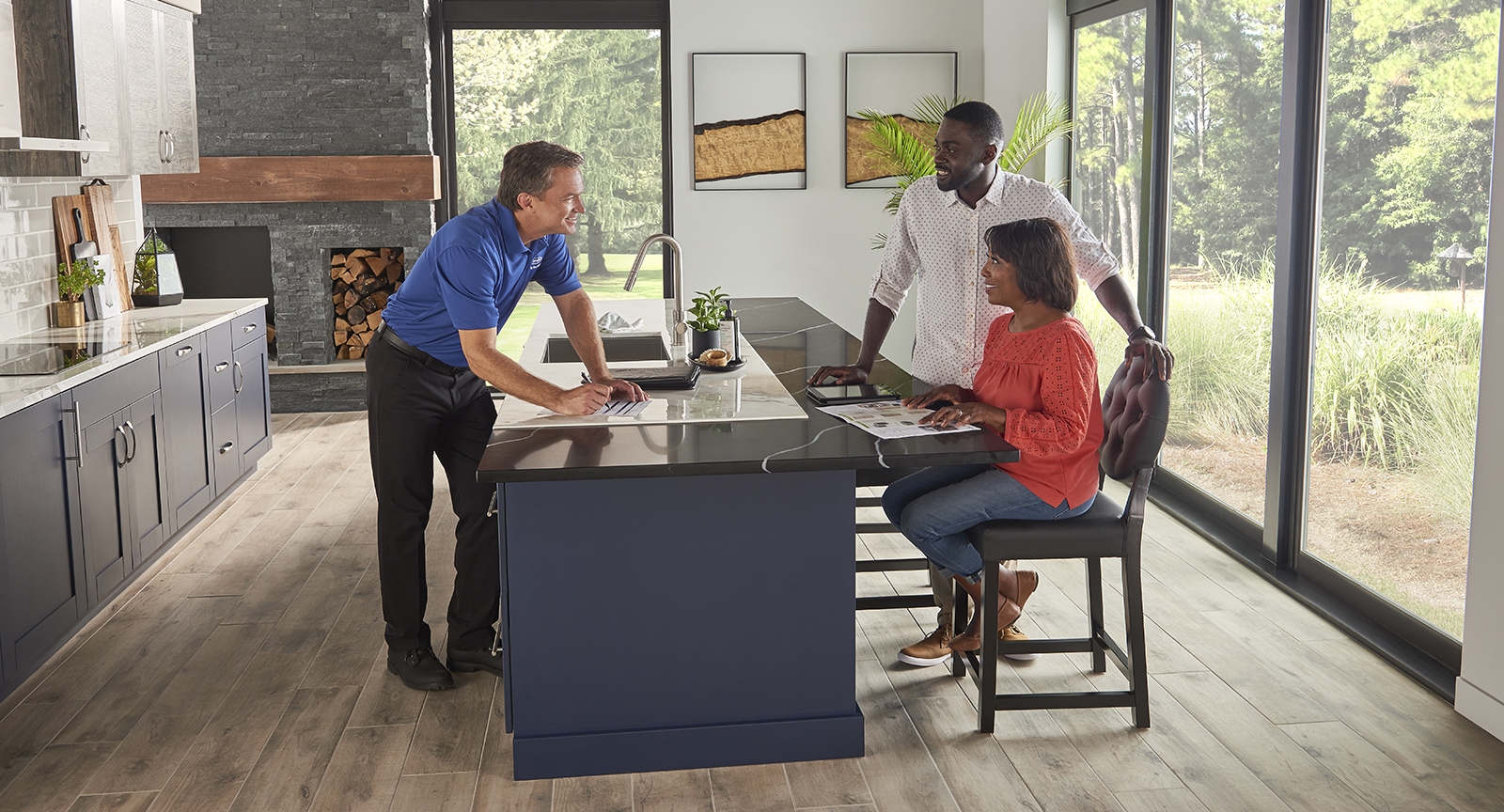How To Clean AC Coils: AC Coil Cleaner Tips
There’s nothing quite as refreshing as stepping into a cool, comfortable home on a hot, humid summer day. It’s a sensation we’ve enjoyed since 1902 when modern air conditioning was invented by Willis Carrier . For most people, it’s hard to imagine life without it. However, like many other mechanical devices, air conditioners require some basic cleaning and maintenance to continue operating at their best It’s kind of like when you buy a new car, you know the key to keeping it running its best is to keep the engine tuned up, the oil changed, and the wheels balanced and rotated. When it comes to central air conditioning, cleaning your air conditioner coils is integral to the long-term health of the system. Air conditioner coil cleaning is an important part of air conditioner repair and can help you save money, maintain efficiency and extend the system’s life expectancy. Let's dive into how to clean AC coils and why this is important.

AC Coil Types
In a split-system central air conditioner, there is an indoor unit, typically a furnace and evaporator coil or fan coil, and an outdoor unit, often referred to as the air conditioning unit. Each of these units houses a coil that is vital to the air conditioning process. Inside the home, the evaporator coil, sometimes referred to as the cooling coil, is located on the air intake side of the fan coil or the outlet side of the furnace. Its job is to remove heat from indoor air so the blower fan can return cool, refreshing air to the home.

The condenser coil, found in the outdoor unit, releases that captured heat outside. Most evaporator and condenser coils are made of copper tubing which runs through a series of thin, aluminum strips called fins. While there are other coil designs and compositions, such as all aluminum coils, or spine fin coils that look kind of like a large pipe-cleaner, airflow across the coil helps the transfer of heating energy into and out of the home.

Because the coils play such a crucial role in the cooling process, keeping them clean helps to ensure the long-term health of your air conditioning system. While it may look like a potential DIY project, the easiest and best way to clean your coils is to have an expert do it. Your local Carrier® HVAC dealer will know precisely what’s needed to care for your system and is well trained in maintaining your air conditioner system coils for optimal efficiency and longevity.
Why Is It Important to Clean AC Coils?

Due to the tight spacing between the coil fins, surface moisture from the cooling process, and the amount of air that flows across them, dirt, dust, debris and other pollutants can build up on the coil surfaces. Over time, this buildup reduces the system’s ability to transfer heat into and out of the home, thus reducing your system’s ability to provide summer cooling. In more extreme cases, dirty coils can also hinder or block the airflow that is so important to the entire process. This can result in having a less comfortable home and rising utility bills due to the lost energy efficiency. Even worse, dirty coils make the system work harder than intended and can result in shorter system life and potentially expensive repair bills. In short, the cleaner the air conditioning coil, the more efficient the system will operate.
Dirty coils can lead to:
- Increased operating temperatures. Excess buildup of dirt and debris can cause undue stress on the system, causing fans and compressors to work harder and at increased operating temperatures to achieve the desired indoor comfort.
- Reduced comfort. Your air conditioning system helps remove unwanted and uncomfortable humidity from your home as a natural part of the cooling process. Dirty coils can reduce overall system effectiveness, causing higher humidity inside and less overall comfort.
- Decreased cooling efficiency. The buildup that accumulates on the surface of the coils forces them to work harder to either absorb or release heat, resulting in less efficient operation.
- Increased cooling costs. Less efficient operation means higher operating costs. Dirty coils mean spending more money keeping your space cool.
- Increased system wear. A blocked evaporator coil often causes the compressor to run at increased temperatures, placing stress on the entire system. Because the compressor is one of the highest-cost replacement items within the air conditioning system, protecting the compressor can help you avoid expensive repair bills.
- System repairs or replacement. System break downs resulting from over-stressed components can lead to service calls, replacing system components, and in more extreme cases, replacing an entire system.
How Often Should AC Coils Be Cleaned?
As common sense would dictate, AC coils should be cleaned when they’re dirty. But how quickly they get dirty depends on how often you use your air conditioner, how often you change your AC filter, whether you have an air filter, the amount of dust or debris in the air both inside and outside your home and the number of people that live in the space. As a rule of thumb, we’d say at the very least, you should have an HVAC professional perform an AC maintenance check on your system once a year before summer, when your air conditioner will be used most often.
They can properly perform an air conditioner coil cleaning, change air conditioner filters and test the system to ensure everything is running smoothly when you need it most. And, scheduling AC service has never been easier with our online scheduling tool. Just look for the "Schedule Now" button located by each participating dealers contact information.
How to Clean Air Conditioner Coils
Because air conditioner coils are so vital to your comfort and efficient system operation, getting the job done right is important. And due to the delicate nature of the coil fins that help the heat transfer process, making sure they don’t get damaged during cleaning is also very important. That’s why we recommend hiring a professional for regular, scheduled coil cleaning. Having a trained Carrier® expert service your air conditioner is the most reliable way to ensure its efficiency and longevity. Not only are they properly trained on how to clean AC coils, they can also test your system prior to the cooling season to ensure that your system is performing at its peak.
Jennifer Fletcher, owner of Modern Air Solutions in Gurnee, IL, provides guidance on homeowners interested in cleaning their AC coils.
“Homeowners can rinse off superficial dirt as a quick fix, but a professional should be called to perform a thorough cleaning and ensure the system is operating properly,” Fletcher said.
However, understanding the methods and procedures involved in air conditioner coil cleaning will help you know what to expect and also to better communicate your concerns with your local HVAC dealer. Those methods and procedures are described in the sections that follow.

Getting to the Air Conditioning Coils
Air conditioning systems have both an indoor evaporator coil and an outdoor condensing coil. The indoor evaporator coil is typically either mounted to your furnace and has its own cabinet, or is housed inside a fan coil or air handler unit. Each model is a little different, but your Carrier dealer can usually access the evaporator coil through an access panel that is often removed with either a nut driver or screwdriver. The condenser coil in the outdoor unit usually wraps around the interior components and essentially acts as the side walls of the exterior unit. It is either well-exposed and protected by a sturdy wire coil guard, or less visible and shielded by a more protective louvered metal outer panel. In some cases, the outer casing and top may need to be removed. Once the coils are exposed and accessible, your dealer will inspect them and determine the proper cleaning method following the manufacturer’s recommendations. This may include straightening bent fins using a special fin-straightening tool.
Methods For How To Clean AC Coils
AC Coil Cleaner Method: Compressed Air
Your dealer may use a combination of using compressed air, a shop-vac and heavy-duty coil-cleaning chemicals that meet the specifications of your air conditioner model. This method is typically recommended only for the outdoor condensing coil. Cleaning the indoor evaporator coil with compressed air will blow dust and debris inside the home. Using compressed air can be a quick and reasonably effective method to remove surface dust, dirt and debris from the coil. When cleaning an outdoor coil with compressed air, an HVAC dealer will blow the air through the coils opposite the direction that air flows through the coil during normal use. This will result in pushing air through the cleaner side back through the dirtier side. Your dealer will be careful to blow the air straight through the fins, not at an angle. This is because the fins are very thin metal and bend easily. Using the shop vac, the service technician can then clean the unwanted dirt and debris from the unit. These actions will remove mostly loose, surface materials from the coil. To remove more stubborn buildup, your dealer can follow up with either a household detergent or a commercially available coil cleaning solution.
AC Coil Cleaner Method: Household Detergent
While there are a number of commercially available coil cleaning solutions on the market, air conditioner coils can be cleaned with a solution of a mild household detergent and water. The detergent and water mix is applied to the coil using a low-pressure sprayer. The coil is either allowed to drain naturally, or lightly rinsed with a garden hose. This process may be repeated as necessary. If a contractor chooses this method, be sure they are using a low-pressure sprayer and not using a pressure washer. They should never use a pressure washer, because the high-powered spray will most likely damage the coil’s thin metal fins. Damaged or bent fins can restrict airflow and can result in reduced heat transfer capabilities. Also be sure they are not using a detergent that is highly acidic. Acidic cleaners damage the copper and alloy metals used in the coil, and potentially cause corrosion which will shorten the life of the coil.
AC Coil Cleaner Method: Commercial Cleaners
Your Carrier dealer may choose to clean your air conditioner coils with commercially available coil cleaning solutions. There are several types available, including foaming cleaners for outdoor. These can be found in aerosol cans or available in bulk for use in a low-pressure sprayer. When cleaning your outdoor coil, the contractor will likely clear away any surface debris by hand or with a special fin brush. Then, they will follow up by applying the commercial cleaner, and rinsing the coil with water depending on the cleaner instructions and manufacturer’s recommendations. To clean your indoor evaporator coil, the contractor will most likely clear larger debris by hand or with a special brush, then follow up with water and mild detergent.
AC Coil Cleaning is Cost-Effective
While many homeowners would be tempted to perform air conditioner coil cleaning on their own using the previously described techniques, the better solution is to hire a trusted HVAC professional. Regular coil cleaning services are much less expensive than repair bills that could result from ignoring this maintenance item. Some HVAC dealers even run inexpensive “clean and check” specials that make the service more affordable. Others may offer a service contract that includes regular cleanings and inspections along with a guarantee against breakdown or a discount on repair work. Considering the extended system lifespan, sustained energy efficiency, lower operating costs, better comfort and reduced potential for extensive repair work, AC coil cleaning is a cost-effective way to care for your system.
Schedule An AC Coil Cleaner Appointment With A Carrier Dealer

Contact your local Carrier HVAC expert to schedule an AC tune up appointment and to get your AC coils cleaned. They will provide the necessary care and maintenance to keep your air conditioning system running effectively and efficiently all season long with professional-grade AC coil cleaner and the expertise to thoroughly clean coils.
Contact A Carrier HVAC Dealer keyboard_arrow_rightFrequently Asked Questions On AC Coil Cleaning
Learn More About ACs
- Why is my Air Conditioner Not Cooling?
- Learn what to do if you have mold in AC unit
- Find out how to Troubleshoot an Air Conditioner
- How Do Air Conditioners Work?
- Why is my AC Fan Not Working?
- Learn How to Change Air Conditioner Filters

